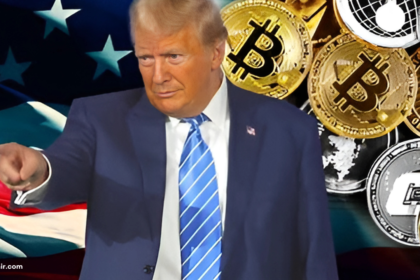Bitcoin is now hovering around $71,000, getting closer to its record. However, the surge in price conceals a change in the market that has caused retail traders to miss out on the rally.
Consider Coinbase. According to the exchange, a decline in retail trading contributed to the third quarter’s lower-than-expected revenue.
Executives at Coinbase, including founder and CEO Brian Armstrong, have resisted what they see as the SEC’s overreach. Since FTX’s demise, the SEC has taken serious action against the cryptocurrency sector.
The SEC has taken enforcement action against several powerful companies, including Gemini, Genesis, TRON executive Justin Sun, Do Kwon, and cryptocurrency exchange Kraken, at the order of SEC chair Gary Gensler.
Grewal stated in a statement, “We are confident in the legality of our assets and services and prepared for this disappointing outcome.” “If necessary, we welcome a legal process to show that the SEC has not been reasonable or fair in its engagement on digital assets, and to provide the clarity we have been advocating for.”

Adam Morgan McCarthy, an analyst at the data company Kaiko, told DL News that there was a lot of negative sentiment this year in particular, which probably discouraged traders.
Coinbase cautioned, though, that volatile cryptocurrency prices in October will also be a challenge this quarter.
According to Coinbase, the company’s retail subscription and services division is expected to generate between $505 million and $580 million in revenue in the fourth quarter.
Following a 7% quarterly decline in revenue in that division, Coinbase stated that the outlook “reflects certain headwinds including a 10% price decline in Ethereum in October compared to the third-quarter average, as well as lower interest rates.”
It indicates that individual traders have avoided trading cryptocurrencies and have not yet made a comeback, at least not in large numbers.

The forecast alarmed investors, as did the missed earnings targets. On Thursday, the stock dropped 9% in New York.
Coinbase claimed that fewer investors visited the exchange as a result of reduced volatility and declining cryptocurrency prices.
Bitcoin’s volatility has decreased by 40% between 2020 and September, according to data from Volmex, which was flattened by the entry of larger institutional investors and spot cryptocurrency exchange-traded funds.
Morgan McCarthy went on to say that significant selling events, such as those from the German government and defunct cryptocurrency companies like Mt. Gox, contributed to the gloom.
One of the last procedures before the SEC formally files charges is usually a Wells notice. In general, it presents the regulatory argument’s structure and gives the person who might be accused a chance to refute the SEC’s assertions.
Coinbase stated that the Wells notification had comparatively little information regarding possible infractions and characterized the probe as “cursory.”
In a blog post, Coinbase Chief Legal Officer Paul Grewal stated, “We are very confident in the way we run our business – the same business we presented to the SEC in order for us to become a public company in 2021, even though we don’t take this development lightly.”
The company stated that the exchange’s offers would continue to function normally until any legal proceedings were concluded.
In February, stablecoin issuer Paxos received a Wells notice from the SEC. “We are ready to vigorously litigate if necessary and will engage with the SEC staff on this issue,” a Paxos representative told CNBC at the time.
Coinbase wants greater regulatory clarification, according to Grewal.
He declared, “Tell us the rules, and we’ll abide by them.” “Give us a real registration path, and we’ll register the areas of our business that require registration.”

Coinbase isn’t the only one
Even though Bitcoin increased during the second and third quarters, the massive payments company PayPal saw a nearly 11% decline in the amount of cryptocurrency it held on behalf of its clients.
This is due to the fact that institutional investors are controlling a larger portion of the market and influencing prices more than their retail counterparts.
The demand for Bitcoin spot ETFs from so-called whales has doubled over the last year, according to research firm CryptoQuant.
Nevertheless, the retail trading scene does have some positive aspects.
“Volumes have somewhat recovered,” Morgan McCarthy stated. “For example, Coinbase’s Bitcoin volumes grew more quickly than Binance’s.”






